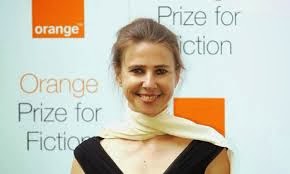
Lionel Shriver’s new novel, Big Brother, tells the story of a forty-something woman, Pandora, whose brother, Edison, has recently grown grotesquely obese. Pandora’s husband, Fletcher, on the other hand, is a fitness fiend and nutrition nazi. When Edison comes for an extended visit, Pandora is distraught by his dramatic upsizing, and she determines to help him lose weight. In the endeavor, her marriage is compromised, and therein lies the story.
I bought Big Brother after hearing an interview with Shriver (also the author of We Need to Talk About Kevin) on NPR. Having read Kevin, I already admired her work, and the concept of this new novel captured my acute attention. As expected, the actual reading was excellent. The story is intellectual and psychological. Shriver’s prose, as in Kevin, is rich with observation, analysis, and intent, as she addresses the base human drives of food, love, power, and ego. The primary plot is simple, but because the key elements are so universally experienced, it’s surprisingly alluring.
Big Brother’s characters are multidimensional and believable. You’ll root for each of them and shake your head at them in turn. Pandora, who narrates the story, is the wallflower type. She rose to national notoriety somewhat accidentally with the surprise success of her custom doll business. Since she’s uncomfortable in the limelight, she takes deliberate steps to maintain her humility and normalcy. Conversely, her brother is a self-important, unctuous, jargon-spouting jazz pianist who left home straight out of high school and flourished on the New York music scene. In his middle age, his career deflated, but his ego ‒ and his body ‒ did not.
I bought Big Brother after hearing an interview with Shriver (also the author of We Need to Talk About Kevin) on NPR. Having read Kevin, I already admired her work, and the concept of this new novel captured my acute attention. As expected, the actual reading was excellent. The story is intellectual and psychological. Shriver’s prose, as in Kevin, is rich with observation, analysis, and intent, as she addresses the base human drives of food, love, power, and ego. The primary plot is simple, but because the key elements are so universally experienced, it’s surprisingly alluring.
Big Brother’s characters are multidimensional and believable. You’ll root for each of them and shake your head at them in turn. Pandora, who narrates the story, is the wallflower type. She rose to national notoriety somewhat accidentally with the surprise success of her custom doll business. Since she’s uncomfortable in the limelight, she takes deliberate steps to maintain her humility and normalcy. Conversely, her brother is a self-important, unctuous, jargon-spouting jazz pianist who left home straight out of high school and flourished on the New York music scene. In his middle age, his career deflated, but his ego ‒ and his body ‒ did not.
 |
| Obesity in America (from www.foodarian.com) |
While the primary plot centers on Edison’s food issues, Pandora and Edison also reminisce about their unconventional upbringing, each from their own contrasting perspectives. Their mother’s tragic death was a suspected suicide, and their father, a Hollywood television actor, was more attached to his onscreen children than his biological progeny. Throughout the pages, Shriver deconstructs these complexities without the coldness of an overt psychoanalysis. Instead, it’s a show-and-tell of dysfunction, and Pandora is, mostly, the voice of reason.
The surprise ending isn’t ‒ obviously ‒ what you’ll be expecting. But it isn’t even what you’d expect for a surprise ending. It’s strangely settling and unsettling at once.My only criticisms of Big Brother tie back to We Need to Talk about Kevin. First, Pandora’s narrative style is identical to Eva’s (the protagonist in Kevin). Although Pandora’s characteristics and circumstances are effectively differentiated from Eva’s, both women are hyperanalytical intellectualizers with expansive vocabularies, which probably means that Shriver is too. Shriver’s mind and lexicon impress me, but if she can’t find unique voices for her first-person narrators, she might consider writing in third-person next time. Also, and mainly, Kevin is still Shriver’s masterpiece. The characters in Big Brother aren’t quite as gripping, the development not quite as driving, the climax not quite as spectacular.
The surprise ending isn’t ‒ obviously ‒ what you’ll be expecting. But it isn’t even what you’d expect for a surprise ending. It’s strangely settling and unsettling at once.My only criticisms of Big Brother tie back to We Need to Talk about Kevin. First, Pandora’s narrative style is identical to Eva’s (the protagonist in Kevin). Although Pandora’s characteristics and circumstances are effectively differentiated from Eva’s, both women are hyperanalytical intellectualizers with expansive vocabularies, which probably means that Shriver is too. Shriver’s mind and lexicon impress me, but if she can’t find unique voices for her first-person narrators, she might consider writing in third-person next time. Also, and mainly, Kevin is still Shriver’s masterpiece. The characters in Big Brother aren’t quite as gripping, the development not quite as driving, the climax not quite as spectacular.
 |
| Lionel Shriver (from www.theguardian.com) |



